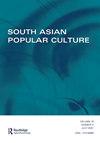Pious, populist, political masculinities in Pakistan and India
IF 0.3
0 ASIAN STUDIES
引用次数: 1
Abstract
ABSTRACT This article makes a case for the inclusion of piety politics and populist masculinities in any analysis of the governance and international relations between two South Asian rivals and nuclear neighbours; Muslim-majority Pakistan and Hindu-majority India. It offers a comparative case-study of the redeemed Sufi masculinity of the recently deposed Pakistani Prime Minister, Imran Khan, and the ascetic Hindutva one performed by the Prime Minister of India, Narendra Modi. The study finds that the nativist, capitalist and gender discriminatory regimes of both populist leaders depend on subduing any dissenting resistance offered by subaltern masculinist and feminist politics. The conclusion finds that military-pious-heteronormative masculinity serves to stabilize patriarchy in both ‘manly states’ and underwrites regional security policies. It also points to how subversive movements are constantly challenging these hegemonic masculinities.巴基斯坦和印度的虔诚、民粹主义、政治上的男子气概
本文将虔诚政治和民粹主义男子气概纳入两个南亚对手和核邻国之间的治理和国际关系的任何分析中;穆斯林占多数的巴基斯坦和印度教徒占多数的印度。它提供了一个比较案例研究,比较了最近被罢免的巴基斯坦总理伊姆兰汗(Imran Khan)所表现出的苏菲派男子气概,以及印度总理纳伦德拉莫迪(Narendra Modi)所表现出的苦行印度教(Hindutva)。研究发现,两名民粹主义领导人的本土主义、资本主义和性别歧视政权都依赖于压制来自下层男性主义和女性主义政治的任何反对抵抗。结论发现,军事虔诚的异性恋男性气概有助于稳定“男子气概国家”的父权制,并为地区安全政策提供保障。它还指出,颠覆性运动是如何不断挑战这些男性霸权的。
本文章由计算机程序翻译,如有差异,请以英文原文为准。
求助全文
约1分钟内获得全文
求助全文
来源期刊

South Asian Popular Culture
Arts and Humanities-Visual Arts and Performing Arts
CiteScore
1.00
自引率
0.00%
发文量
29
 求助内容:
求助内容: 应助结果提醒方式:
应助结果提醒方式:


